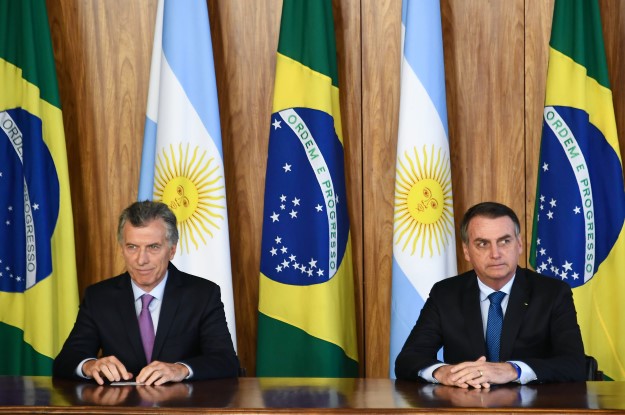BY OLIVER STUENKEL | JANUARY 16, 2019
The new president’s foreign policy revolution creates unprecedented risks for Brazil – and depends on untested international partnerships.
https://www.americasquarterly.org/content/bolsonaros-5-key-foreign-policy-challenges-2019
To say that Brazilian President Jair Bolsonaro’s foreign policy views are controversial would be an understatement. Extreme positions on matters ranging from climate change to migration, and recent attacks on “globalism” and “cultural Marxism” by Foreign Minister Ernesto Araújo, have already affected Brazil’s reputation abroad, and not for the better. The following analysis, however, will leave out any criticisms of Bolsonaro’s overall foreign policy approach (which I have offered on previous occasions) and instead look at the five key challenges stemming from the foreign policy philosophy that he has embraced.
Challenge #1: Assure tangible mutual benefits from strategic partnership with the United States
Bilateral ties with the United States are the centerpiece of Brazil’s new foreign policy. To win over critics, Bolsonaro must show that he is able to fundamentally transform the nature of the relationship and provide tangible evidence of how Brazil will benefit from moving closer to Washington. That is easier said than done. U.S. President Donald Trump is a notoriously transactional president and has little incentive to create the long-term partnership Brazil’s foreign minister dreams of. Trump’s decision to stay away from Bolsonaro’s inauguration, and send Secretary of Defense Mike Pompeo instead, shows how hard it will be to establish a true bromance between Bolsonaro and his idol (compare the decision to that of Barack Obama, who sent his vice president to Dilma Rousseff’s inauguration in 2014).
From Trump’s point of view, there are important limitations to the relationship: opening the U.S. to Brazilian products such as steel and soy would hurt his own electorate ahead of what promises to be an epic re-election campaign in 2020. Even if Trump would like to help Bolsonaro, he is unlikely to overcome resistance in a House of Representatives now dominated by Democrats – who have recently voiced their criticism of Brazil’s new president.
There is potential for deepening ties, however. For example, unilaterally offering a visa waiver to U.S. tourists, despite a tradition of reciprocity when it comes to visa policies, would help promote tourism in Brazil, which punches below its weight when it comes to attracting international visitors. Brazil could also seek more profound cooperation in fighting transnational crime, strengthening border protection, and establishing closer coordination in the realm of anti-terrorism. This last issue could gain relevance after Brazil moves its embassy in Israel from Tel Aviv to Jerusalem, a step Bolsonaro has promised but that could make Brazil and its citizens abroad a possible target. In military affairs, too, there is potential for broader cooperation with both countries. Finally, Bolsonaro will ask for explicit U.S. support when it comes to Brazil’s OECD candidacy.
To an important extent, Bolsonaro’s foreign policy will be measured by the progress he makes vis-à-vis ties to the United States.
Challenge #2: Regain leadership in the regional response to Venezuela
Bolsonaro’s second key foreign policy challenge will be to regain the role of agenda-setter in the Venezuelan crisis, after having been relegated to a mere bystander since 2013. Rather than pushing for radical options such as military intervention, a move rightly discarded by Vice President Hamilton Mourão during the campaign, Brazil’s regional leadership will be measured by its capacity to mobilize and align the region, including skeptics such as Bolivia and Mexico.
This strategy requires systematic and patient diplomacy that can only be achieved if others feel Brazil is committed to regional cooperation in other areas too. Pursuing that policy will become far more complicated if President Mauricio Macri fails to win…
Read full article here.









